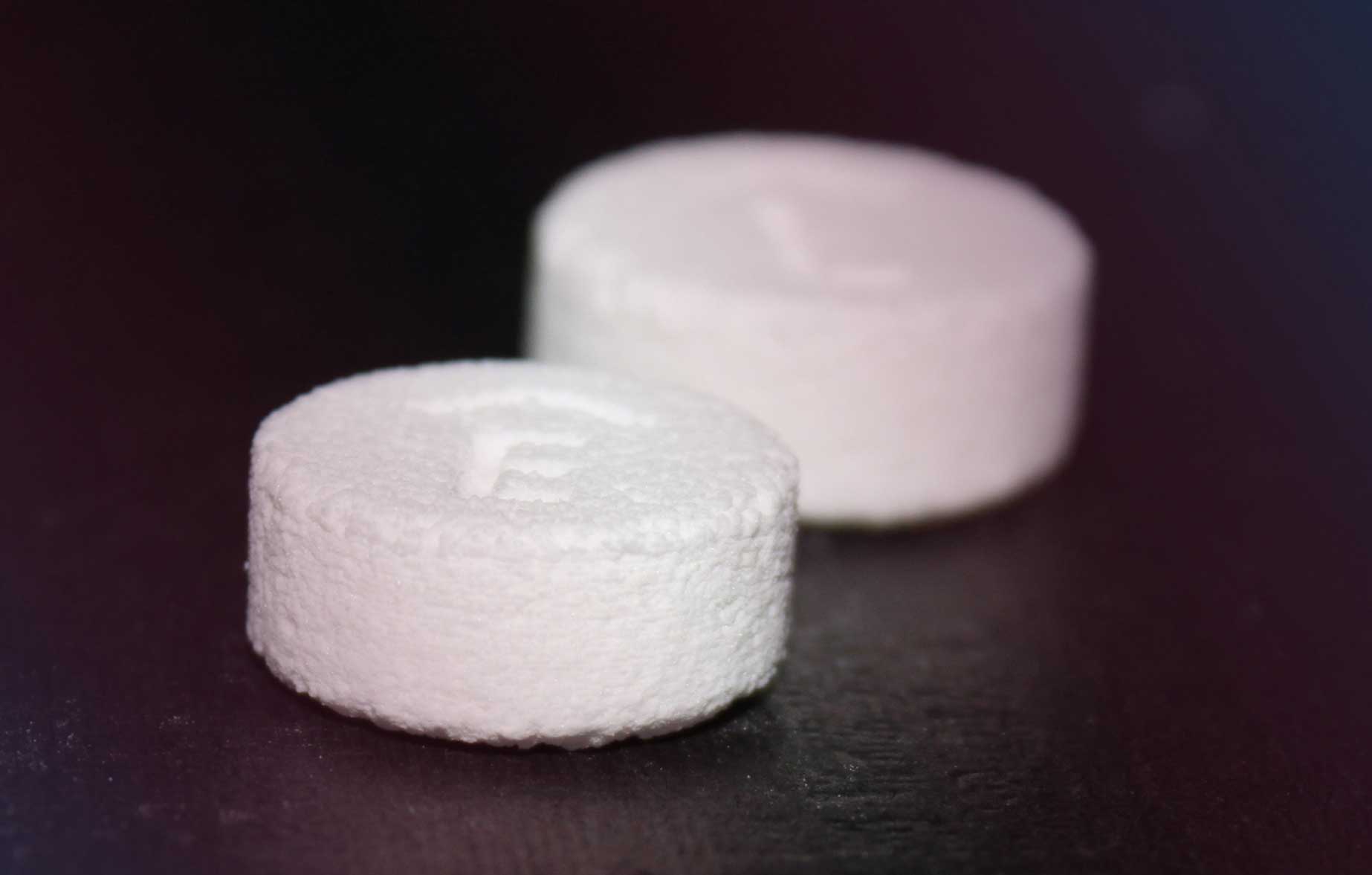
The Food and Drug Administration has approved the first 3D printed pill.
The medicine, Spritam (levetiracetam), helps to treat epilepsy. Previous levetiracetam tablets did not dissolve easily, but the new version boasts porous layers that make it easily dissolvable, according to a press release from the company, Aprecia Pharmaceuticals. A spokesperson for the FDA confirmed to the Associated Press that Spritam is the first 3D printed prescription tablet to gain approval.
Seizure medication is often too large and difficult to swallow—particularly for the elderly and children—making advances in 3D printing key for epileptics and other who suffer from seizures, according to the company.
“By combining 3DP technology with a highly-prescribed epilepsy treatment, SPRITAM is designed to fill a need for patients who struggle with their current medication experience,” said Don Wetherhold, Chief Executive Officer of Aprecia.
The pill would be the latest in a series of healthcare products that utilize 3D printing, including jaw replicas, dental implants, and hip replacements. Scientists are currently working to develop 3D printed tracheas and bones, ears, kidneys, and skin.
More Must-Reads From TIME
- The 100 Most Influential People of 2024
- Coco Gauff Is Playing for Herself Now
- Scenes From Pro-Palestinian Encampments Across U.S. Universities
- 6 Compliments That Land Every Time
- If You're Dating Right Now , You're Brave: Column
- The AI That Could Heal a Divided Internet
- Fallout Is a Brilliant Model for the Future of Video Game Adaptations
- Want Weekly Recs on What to Watch, Read, and More? Sign Up for Worth Your Time
Write to Tanya Basu at tanya.basu@time.com